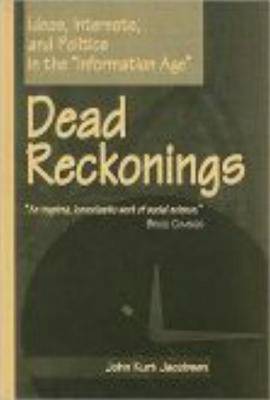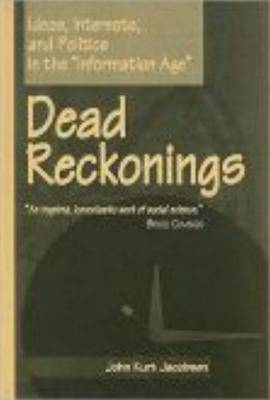
- Afhalen na 1 uur in een winkel met voorraad
- Gratis thuislevering in België vanaf € 30
- Ruim aanbod met 7 miljoen producten
- Afhalen na 1 uur in een winkel met voorraad
- Gratis thuislevering in België vanaf € 30
- Ruim aanbod met 7 miljoen producten
Zoeken
Dead Reckonings
Ideas, Interests, and Politics in the Information Age
John Kurt Jacobsen
Paperback | Engels
€ 38,45
+ 76 punten
Omschrijving
In periods of rapid change, social scientists are nearly as much "at sea" as anyone else. These "dead reckonings" accordingly try to chart a course through an arena where familiar landmarks are altered or absent. "Dead Reckonings" is aimed at an audience of political scientists and social scientists but should interest many nonspecialists who are concerned with these broad social issues. Therefore, the book investigates how scientific ideas interact with material circumstances and social ideologies to influence politics. It addresses debates in both the philosophy of science and in the field of political science; examines the socio-economic impact of foreign high technology investment upon "less developed" host states; the difficulties of reconciling the microelectronics revolution with the social needs in advances industrial nations; the prudent supervision of the export of sensitive nuclear fuels and facilities; the role that technology as an "independent variable" plays in the politics of trade policy, especially in the United States, the limits of rational choice analysis in the peace process in Northern Ireland, and a radical reconsideration of the "national-international connect" in political science and its implications for the porous border between the subdisciplines of international relations and comparative politics. The book concludes with a pair of short essays dealing with ideological antics within television and cinema.
Specificaties
Betrokkenen
- Auteur(s):
- Uitgeverij:
Inhoud
- Aantal bladzijden:
- 238
- Taal:
- Engels
Eigenschappen
- Productcode (EAN):
- 9781573923897
- Verschijningsdatum:
- 1/09/1997
- Uitvoering:
- Paperback
- Formaat:
- Trade paperback (VS)
- Afmetingen:
- 150 mm x 226 mm
- Gewicht:
- 358 g

Alleen bij Standaard Boekhandel
+ 76 punten op je klantenkaart van Standaard Boekhandel
Beoordelingen
We publiceren alleen reviews die voldoen aan de voorwaarden voor reviews. Bekijk onze voorwaarden voor reviews.











